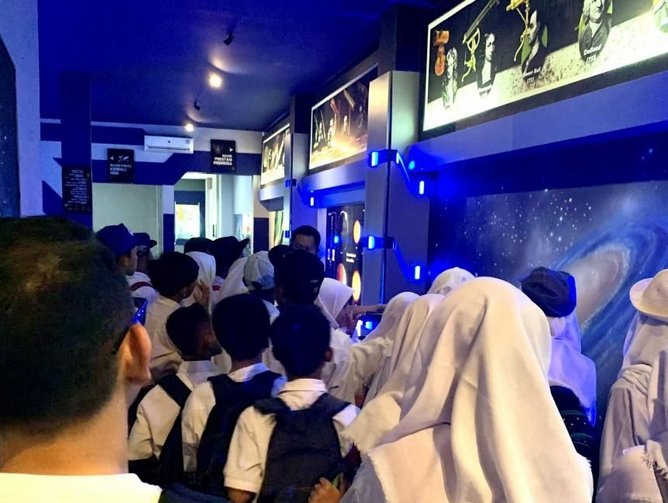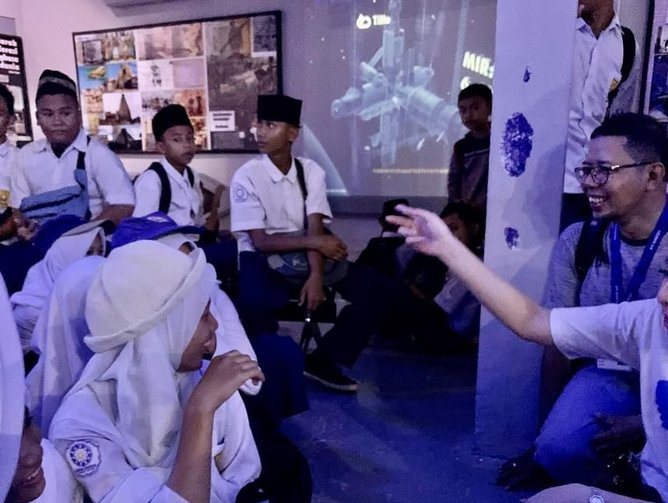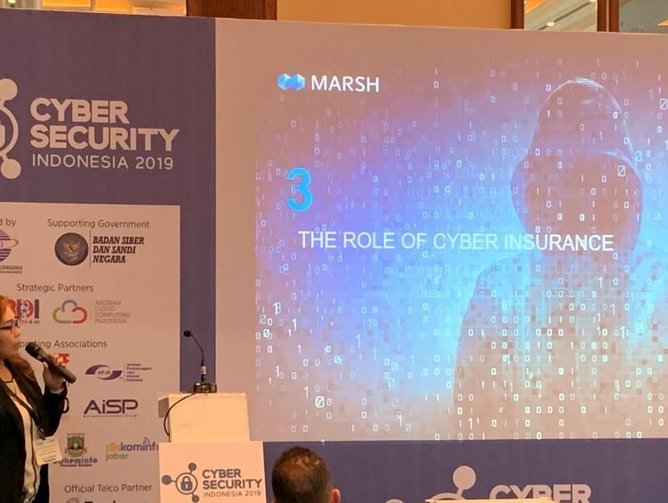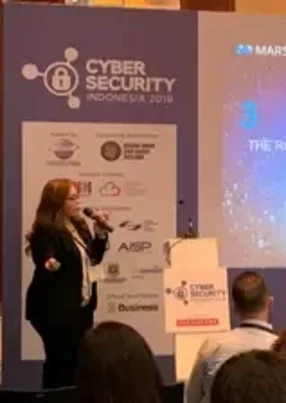Establishing its national presence in 1983, Marsh Indonesia is part of Marsh & McLennan Companies, a global professional services firm specialising in insurance brokering and risk management solutions. The company distinguishes itself by its commitment to an always client-centric mode of operation and a breadth of expertise that focuses on the client's specific industry for a higher quality of advice and service. Following a merger with Jardine Lloyd Thompson (JLT) Indonesia in early February 2020, Marsh now employs over 200 staff with more than 30 certified practitioners ready to dispense advice and create bespoke insurance solutions. To this end, the company is able to offer a suite of varied and interconnected services to satisfy the needs of its clients, including insurance claims management, valuation services, specialised risk management assessments for core industries and more.
The consummate professionalism and depth of knowledge are what first struck Douglas Ure, President Director and CEO, when he joined the company 13 years ago. “Marsh offers something different to a large number of other organisations,” Ure explains. “It has global strength, a geographical footprint and it covers so many different areas of expertise. If you look at the broader Marsh & McLennan Companies, I could not envisage many companies that would match the broad range of expertise across the business.” Starting as a managing consultant within Marsh’s consulting practice based in London, he took on a wider Asia regional role based in Singapore, before taking up his current role as CEO of Indonesia, based in Jakarta. Coming from a background in risk management at Accenture and Primary Group, Ure states that this background experience has been invaluable in shaping his approach to the role. “We put our clients at the heart of what we do and that means helping them manage risks through these uncertain times. There's more risk facing our clients today than ever before: cyber threats, political uncertainty, terrorism, war and pandemics,” he says. Marsh’s aim, then, is to redress the balance by serving its clients by helping them manage those uncertainties and positioning them for growth.
Achieving that goal necessitates a company which knows how to assemble a great team and drive collaboration at all levels of the business. Recently, Ure points out, this meant thinking outside the box in terms of its digital transformation strategy: hiring tech-savvy people to augment the company’s field of expertise. “We're currently looking to set up our digital team by attracting a lot of people into the Marsh organisations globally who don’t necessarily have any insurance or risk management experience,” he says. “Then, the collaboration with our other teams will ensure that we provide our clients with risk and insurance solutions in a much more efficient way.” However, this is a depth of collaboration which doesn’t simply rest at the colleague-to-colleague level; Marsh also engages its partner companies to join its mission to put clients first, understand the problems they face and put forward workable solutions on the best way to proceed. In combination with financial strength, stability and overall trustworthiness, this cultural fit is the most invaluable aspect of a partner’s business to Marsh.
Coinciding with the rise of the global digital revolution has been the proliferation of cyber threats and the need for greater online security. As an expert in risk management, Marsh has been more than up to the task: providing the right advice to help clients manage specific risks, the knowledge to be able to quantify risk, the understanding of other common associated risks and communicating a more effective way to manage them. Ure highlights this as something that the company feels very strongly about. “Marsh is practicing what it preaches by making sure that its operations are digitally secured by the right tools and with the proper infrastructure in place to protect both client and colleague data.” Despite best intentions, however, the fast-paced nature of the tech industry means that new threats are always appearing just as the old ones are resolved. This means Marsh has to stay agile and be mindful of innovative new developments in order to guarantee best-in-class service. “It's very difficult to completely remove risk,” Ure says. “The idea is that we're trying to minimise the increase in risk and manage it effectively.”
Cybersecurity is necessarily a primary concern of companies in the insurance sector, owing to the voluminous quantities of data which must be gathered in order to operate effectively. Marsh is no different and already invests significant resources into its analytical capabilities, helping it assess data to help clients make informed decisions. Developed techniques include its Marsh Analytics Platform (MAP), Global Loss Data Library (LDL) and its Economic Cost of Risk (ECOR) measure. “Making sure that the data collected is helpful and meaningful for our clients is paramount. As the more information gets collected, the more we’ll need to ensure that it’s accurate, hasn't been duplicated and is providing a correct analysis in order to deliver reliable advice,” Ure explains. Bringing together the various strands of a digital transformation could prove challenging, particularly in the Asia Pacific market which has some disparity between the needs of emerging and developed markets. However, the company understands that, geographically, everything doesn't move at the same pace and that different countries or regions have specific requirements.
Unfortunately, the event which has framed remote working as a key work trend globally, COVID-19 (coronavirus), is still around and is likely to shape the fortunes of whole industries, let alone individual companies, for at least the next year. However, Ure believes that Marsh’s decades of experience in the field of risk management has it perfectly poised to support its clients and colleagues as they navigate this very uncertain time. “COVID-19 is going to have a profound effect on the global economy, so putting our colleagues at the heart of the decisions we take and making sure that they are feeling secure is critical,” he explains. “There might be fewer face-to-face meetings and certain opportunities that we thought were going to happen in 2020 might be delayed to 2021, or might never happen at all.” However, despite this, Marsh’s overall plan and vision for the rest of the year remains relatively unchanged: continuing to grow as an organisation and making sure that clients receive a service that’s superior. Ure introduced a flexible working policy for Indonesia in 2019, providing employees much more flexibility in how and where they work. This included moving to a smart office and having all colleagues equipped with a laptop, still not commonplace in Indonesia. Marsh has been a pioneer of remote working for its staff in Indonesia and has been utilising conference call facilities across its operations for a number of years. As such, the current disruption caused by COVID-19 has not yet presented much disruption in business continuity.
When asked how Marsh will continue to ensure a quality service and guarantee client retention, Ure is candid about the threat of complacency for such a large and well-established enterprise. “I don’t think we have any given right to automatically assume that clients are going to renew their business with Marsh,” he states. “The Marsh global strategy comprises four critical pillars: aligned clients, colleagues, communities and growth. If we do those things right, provide leading advice using the best sources of information and use the best people to put clients at the heart of everything we do, then we've probably got a better chance to build long-term, stable relationships.”






